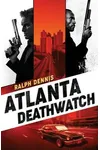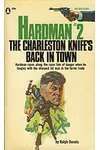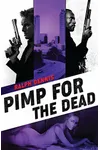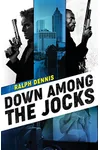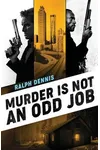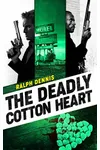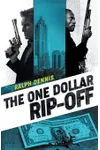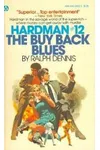Step into the gritty, neon-lit streets of 1970s Atlanta, where Jim Hardman, a disgraced ex-cop turned unlicensed private eye, tackles crime with a shot of whiskey and a sharp wit. Ralph Dennis’s Hardman series, a hidden gem of hardboiled crime fiction, delivers raw, unfiltered tales of redemption, racial tension, and moral ambiguity. Ready to dive into a world where danger lurks around every corner?
With his hulking partner Hump Evans, a former NFL player with a knack for breaking bones, Hardman navigates Atlanta’s underbelly, taking on cases that blur the lines between right and wrong. This isn’t your typical PI series—it’s a vivid snapshot of a city in flux, packed with punchy dialogue and unrelenting action.
How Jim Hardman Began
Ralph Dennis, a South Carolina native with a master’s from the University of North Carolina, moved to Atlanta in the early 1970s, where the city’s vibrant, rough-edged energy inspired his Hardman series. Kicked off in 1974 with Atlanta Deathwatch, the series was published as paperback originals by Popular Library, often mispackaged as sleazy men’s action novels. Despite their cheesy covers, Dennis’s stories were anything but throwaway, earning praise for their nuanced characters and sharp prose.
Dennis, who also taught at UNC and studied at Yale’s School of Drama, poured his keen eye for detail into crafting a PI who was flawed, relatable, and deeply tied to Atlanta’s soul. His goal? To elevate the crime genre with stories that tackled real-world issues like race and corruption, all while keeping readers on the edge of their seats.
The Heart of Jim Hardman
The Hardman series spans 13 novels, with the first, Atlanta Deathwatch (1974), setting the tone as Hardman and Hump investigate a college student’s murder for a black mob boss, plunging into a violent street war. The Charleston Knife is Back in Town (1974) follows their hunt for kids who robbed a gambling party, dodging a deadly hitman. The Golden Girl and All (1974) sees Hardman tracking a seductive drug dealer who kidnapped her daughter, while All Kinds of Ugly (2020), a rediscovered 13th novel, showcases Hardman’s gritty London adventure.
Dennis’s hardboiled style, often compared to Raymond Chandler and Mickey Spillane, shines through in taut prose and vivid settings. Atlanta itself is a character, its bars, back alleys, and power corridors pulsing with life. Themes of racial dynamics—explored through Hardman and Hump’s equal partnership—set the series apart in the 1970s, addressing tensions with unflinching honesty. Redemption and moral grayness drive the stories, as Hardman, a pudgy, middle-aged fixer, wrestles with his past and the costs of survival.
The series’ raw energy and social commentary make it more than just a crime saga. It’s a time capsule of 1970s Atlanta, capturing its grit, greed, and transformation with a dark, witty lens.
Why Jim Hardman Resonates
Though overlooked during Dennis’s lifetime, the Hardman series has a cult following among crime fiction fans and writers like Joe R. Lansdale, whose Hap and Leonard series draws inspiration from Hardman and Hump. Its influence ripples through modern noir, with its blend of action, character depth, and social insight. Brash Books’ reissues since 2018, including the rediscovered All Kinds of Ugly, have introduced new readers to Dennis’s masterful storytelling, earning accolades like a 2020 Shamus Award finalist nod.
The series’ lasting appeal lies in its authenticity—flawed heroes, a vivid setting, and stories that don’t shy away from hard truths. It’s a must-read for anyone craving crime fiction with heart and edge.
- Publication Years: 1974–1977, with a rediscovered novel in 2020
- Number of Books: 13
- Notable Recognition: All Kinds of Ugly was a 2020 Shamus Award finalist
Grab Atlanta Deathwatch and dive into Jim Hardman’s hardboiled world—where every case is a gamble, and Atlanta’s streets are never safe!
